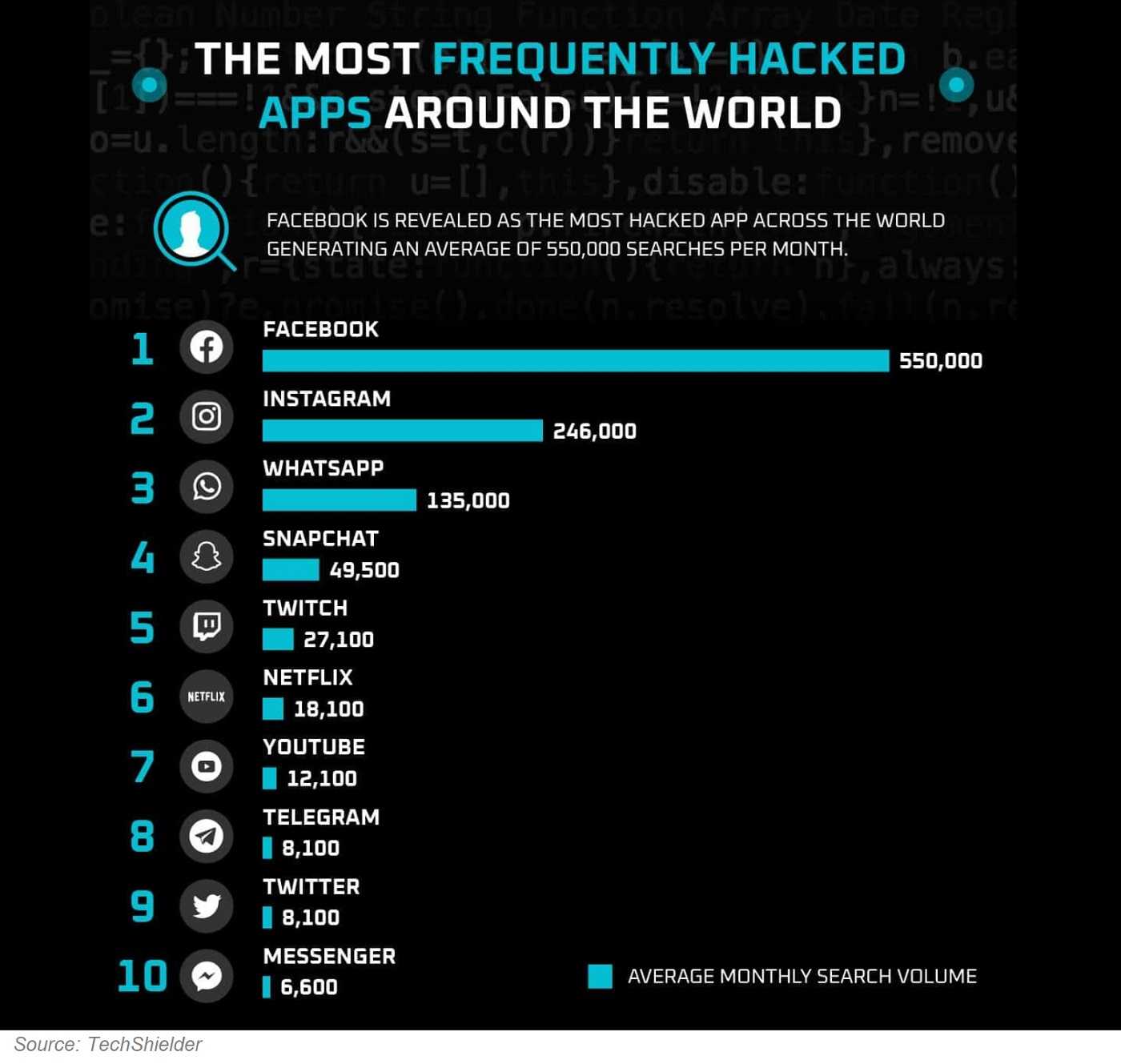The Most Hacked Apps To Get To Your Details
January 8, 2025
We share a lot these days. Some might even say we spout personal details like a water from a fire hydrant, especially when it comes to social media. For hackers, that means they have us all right where they want us. Researchers at TechShielder put in some work and found that there are a number of apps available to us that actually have been repeatedly compromised and share our personal information with plenty of others that we may not want to have our information.
Not surprisingly, the top three apps that are searched for in order to be hacked are owned by Meta. They are Facebook, Instagram, and WhatsApp. These three have a boatload of info on us and our friends.
But some other popular ones are on the list too and they also know a lot. Those are SnapChat, Twitch, Netflix, YouTube, Telegram, and Twitter. It’s not surprising that third parties would want data from all of those. After all, it’s likely that you have accounts with several of them.

How do the researchers know? They analyzed Google searches to find which ones are most searched on for the purposes of hacking.
The apps collect loads of information on us including, phone numbers, email addresses, names, payment card information, to name a few things. All are valuable. And what is particularly worrisome is that 80% the apps on the list actually collect information from your contact lists and from messages you send and receive. And what the cyber thieves can do with all of that is impersonate you and convince your contacts to open links or attachments, or click on things thinking they are from you. Well, that’s one thing they can do.
How do you keep your information safe? The best way is to delete your accounts. But let’s be real. We’re not going to do that, are we? The next best way is to follow a few simple guidelines:
 At risk of sounding like a broken record, always use strong and unique passwords for each online account. Strong means, eight characters that combine letters, numbers, and special characters.
At risk of sounding like a broken record, always use strong and unique passwords for each online account. Strong means, eight characters that combine letters, numbers, and special characters.
- When you have the option to use multifactor (MFA) or two-factor authentication (2FA), take advantage. This provides a bit of extra protection, should your password get compromised. They cannot get to your account without the MFA code, even if they do have your password.
- Make sure the privacy settings are as strong as possible to still allow you to use them, but not give up your info.
- Review all apps before downloading them. Read the reviews and do some of your own analysis. If there are only a few reviews and they are all glowing, perhaps wait a while. Let others be the early adopters.
- Don’t allow apps access to features of your device that they really don’t need. In other words, a photo editing apps does not need access to your microphone. Never allow apps access to administrative features.
- Don’t assume that you don’t need antivirus software on your mobile devices. You do. Really. Put it on all of your devices and make sure it’s updated at all times.